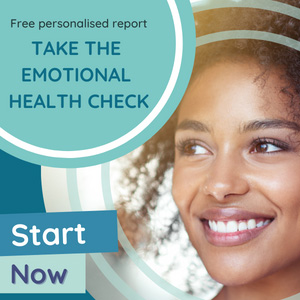Life today certainly looks very different since the pandemic began. COVID-19 has touched almost every aspect of daily life and reshaped a lot of the ways our world works. But today I wanted to look a little closer to home and talk about the impact COVID-19 might have had on you.
In my last blog I talked about how COVID-19 has changed our brains, how they work and even how we think. Do give it a read and then pop back over to this post.
Even if you haven't actually had COVID-19, the environment we've been living in for over 2 years is one of uncertainty, trauma and near-constant stress, all of which can affect the way you think moving forward. Changes to our thoughts and personalities can be scary, so its important to know how to manage and come to terms with them, which is what I want to talk about today.
Notice and Acknowledge
The first and maybe most important step is to notice and acknowledge the changes in others, and in yourself. Whether that's a rise in anxiety, not wanting to socialise in large crowds anymore, difficulty with anger or struggling to process complex issues as quickly as you used to. Rather than try to fight these changes, take some time to examine them. Sit with your new thoughts and acknowledge them for what they are - a response to a once-in-a-lifetime mass trauma event. When you acknowledge those feelings, you can start to realise that you aren't alone, and work on starting the process of acceptance and healing. Similarly, if you notice friends and family behaving differently in the wake of the pandemic, talk to them about it and let them know it's OK. Support networks are really important right now, so lean on yours through the COVID recovery period.
Connect
Between lockdowns and social distancing, we've all been much more isolated over the 2 years than ever before. But isolation isn't good for human beings, and it's one of the things that's played a large part in the brain changes brought on by COVID. Which is why one of the biggest steps you can take is connecting with other people in a variety of different ways. Actively seeking out opportunities to connect is just one of the things that can help us feel better, in the long run, make us more resilient to stress. The emotional support provided by social connections actually triggers certain parts of our nervous systems, releasing a cocktail of neurotransmitters that help regulate our body's response to stress and anxiety. Even something as small as shaking hands can release oxytocin (the feel-good hormone), increasing your level of trust and lowering your stress levels. And hugging someone for just 10 seconds can dramatically improve your mood, boost your heart health, protect you against illnesses and significantly reduce stress.
So take time out to interact with other people in a positive way, whatever you feel most comfortable with. Have a chat with your neighbour while you're taking the bins out. Go on a dog walk with a friend. Catch up over coffee or watch a film together. Remind your brain how to connect with people, and how good that connection feels. If you're struggling with social anxiety this might feel challenging, but it can be just the thing you need to promote recovery. When combined with Solution Focused Hypnotherapy to re-train the brain in how to handle stress, connection could be exactly what the doctor ordered.
Focus On The Short-Term
The further we look into the future, the easier it is to feel overwhelmed by it all. Especially when we're living in such uncertain times, and we sometimes don't know what will change from day-to-day. So instead of trying to plan years of even months into the future, try to focus on the short-term. Week by week or even day-to-day is often easier to manage, and allow you to focus on what's in your power to do right now. Decide on what's important to you, and concentrate on your short-term needs and the short-term needs of the people close to you. If you can, break down each day or week into manageable, achievable tasks and focus on each goal in turn. This can feel hard at first, but as your mood improves you can start to plan a little bit further ahead, and build up your confidence from there.
Get Support
Whatever changes you might be experiencing as a result of the pandemic, you don't have to go through them alone. There is a lot of support, advice and information out there to help you understand your new perspectives, thoughts and behaviours, and learn how to manage them, so you can choose the option that works best for you. COVID-19 has brought out a lot of new issues for many people, including anxiety, depression, chronic stress, PTSD and more, so if you feel you need support to cope in the aftermath of COVID-19 and getting back to normal, don't be afraid to reach out.
One of those options is Solution Focused Hypnotherapy. Because we work with your brain in a trace-like state of relaxation, you're able to visualise images and reflect on different ideas and solutions, while your hypnotherapist can work with you to retrain your neural pathways, bring your brain away from the negative thoughts and build up positive thought patterns in their place. This approach is all about treating the root cause of the issue, rather than just the symptom, so that you can see real and lasting change. Hypnotherapy has been used for years to treat anxiety, stress, procrastination, trauma and more, so it can be the perfect tool to help you get back to your 'normal'.
If you like the sound of hypnotherapy or want to get in touch to ask for questions or advice, feel free to book an initial, confidential chat with me today.







